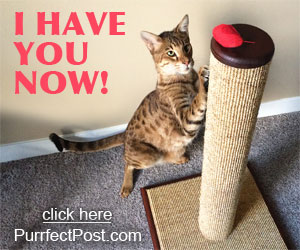Best Litter for Kittens: Is Clumping Litter Safe?

Bringing home a new kitten is a very exciting event. Most people want to make sure they do everything they can to set their new addition up for a lifetime of health and happiness. They may choose a veterinarian, save up for costs, think about cat insurance, and gather other cat care essentials.
One thing that people may not spend too much time thinking about when they get a new kitten is litter type. If you have had other cats, you're likely to use the litter you used for them.
Clumping litter is the most common type of litter used today because of its ease of clean-up and decreased product waste. But is clumping litter the best litter for kittens?
What Is Clumping Litter?
A clumping litter is one that gathers liquids up into a mass that sticks together. These clumps can be easily scooped out of the litter box, conserving litter and keeping the box cleaner, so cats will be more inclined to use it.
These litters form clumps because most of them are made of sodium bentonite clay and sometimes quartz silica. These compounds are considered inert and safe for cats, even if they are ingested in small amounts.
Is Clumping Litter Dangerous for Kittens?
The potential problem with kittens and clumping litter is that, by nature, these litters expand when they come into contact with liquids. Therefore, kittens that ingest a fair amount of litter may potentially develop an intestinal blockage if the litter expands enough in the stomach or small intestine that it can't move through. This would be more of a concern in young kittens than older ones or adults for the following reasons:
- Young kittens have smaller diameter intestines. Older kittens and cats have bigger intestines that are less likely to become blocked unless very large amounts of clumping litter are ingested.
- Eating non-food items is more common in young kittens. Some babies, including the feline variety, explore the world by putting things in their mouths. Kittens are also super playful, and they may jump in the litter box, roll around, play with the litter, and even eat the clumps. This behavior decreases as the kitten ages.
There really haven't been many verified cases of kittens becoming obstructed by clumping litter. However, when it comes to babies of all species, "better safe than sorry" is usually a good attitude to take. Most experts recommend that kittens younger than four months of age be given clay or crystal litter. These types of litter have larger granules that are harder to ingest, and they don't stick to a cat's paws, decreasing the likelihood that much will be ingested during regular grooming activities. Even natural clumping litters may be dangerous because it's their clumping nature rather than their ingredients that cause the risk.
When it's time to switch to clumping litter when your cat is older, do so very gradually. Start by mixing just a small amount of the new litter in with the old. Take about three to four weeks to completely change over, so your cat doesn't develop a litter aversion.
It's interesting to note that there is another group of pets that might be susceptible to developing intestinal blockages from clumping cat litters, and that is small dogs. After all, canine connoisseurs sometimes think the clumped up contents of a litter box are particularly delectable treats. If a small dog were to ingest a large amount of clumping litter, intestinal blockage would be a concern for her, as well.
You May Also Like These Articles:
Cat Spraying: Feline Marking Behavior
How to Detect and Clean Urine Stains
Inappropriate Urination in Cats
Tips for Good Litter Box Placement
Tips for Avoiding Litter Aversion in Cats
Earth Day: How to Green-Up Your Cat-Care Routine
Tips for Good Litter Box Cleaning
General Tips for Solving Inappropriate Urination Problems in Cats
Notice: Ask-a-Vet is an affiliated service for those who wish to speak with a veterinary professional about their pet's specific condition. Initially, a bot will ask questions to determine the general nature of your concern. Then, you will be transferred to a human. There is a charge for the service if you choose to connect to a veterinarian. Ask-a-Vet is not manned by the staff or owners of CatHealth.com, and the advice given should not delay or replace a visit to your veterinarian.




